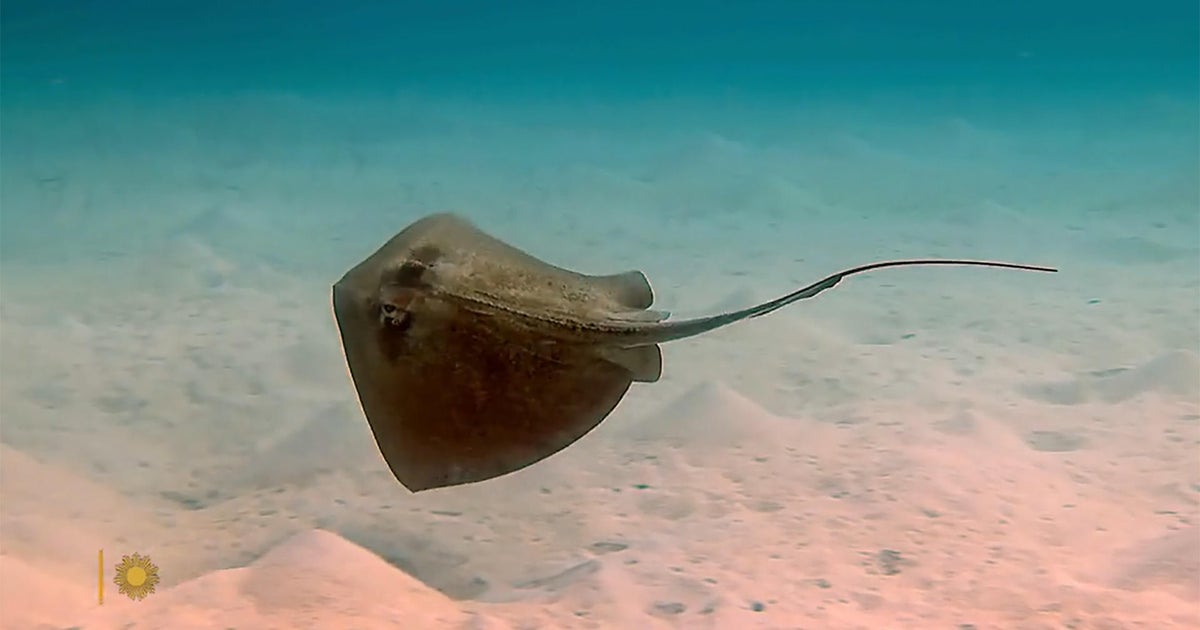Dangerous Portuguese Man O' War Invade Long Island Beaches
HAMPTON BAYS, N.Y. (CBSNewYork) -- Beachgoers have been advised to be on the lookout, as dozens of venomous Portuguese man o' war have been washing ashore on beaches along the East End of Long Island.
As CBS 2's Carolyn Gusoff reported Wednesday, the sea creatures already have left many a little skittish about taking a dip.
"I probably wouldn't go all the way in," said East Quogue's T.J. Marion.
The Portuguese man o' war look similar to a jellyfish, but each one is actually a colony of multiple creatures called zooids that are physically attached together. They are usually found in tropical waters, but not on the shores of Long Island.
But eight Portuguese man o' war were spotted in Southampton last weekend, and another 45 were found further east from Amagansett to Montauk. None of the creatures were alive. They were all found dead in the tide line, officials said.
Southampton town workers made the discovery. Now, on the eve of a holiday weekend, officials say they believe the man o' war have come and gone.
"People should not be concerned at all, and if there was concern, we would alert them," said Chris Bean, superintendent of the Southampton Town Parks and Recreation Department.
In case the man o' war do return, lifeguards will be on the lookout. But lifeguards said there is no danger to worry about.
"We were in the water," said Tiana Beach assistant lifeguard Paul Bass. "If it was a dangerous situation, we would not have been in there."
But make no mistake – the Portuguese man o' war is venomous. In fact, its sting can be far worse than that of a jellyfish.
Still, marine experts have said deaths from the creatures are very rare, and most have come from drowning rather than from the sting.
"If it's a really bad sting, the venom can cause some partial, temporary paralysis," said Todd Gardener of the Long Island Aquarium and Exhibition Center.
The man o' war appear along the surface of the water and they are pushed northward by the wind.
"It just means the wind has been out of the south for a few days, so really, it's not uncommon," Gardener said.
And most people said they are not going to let a few sea creatures spoil their holiday.
"You can't let it ruin your summer," a man said. "It could've been here yesterday, and out in Montauk today."
Lifeguards said strong rip currents are a far greater concern than the Portuguese man o' war.
There have been only two reports of stings from man o' war in Montauk, and both were minor. Experts have said the best treatment for a sting is saltwater compresses.
You May Also Be Interested In These Stories:







